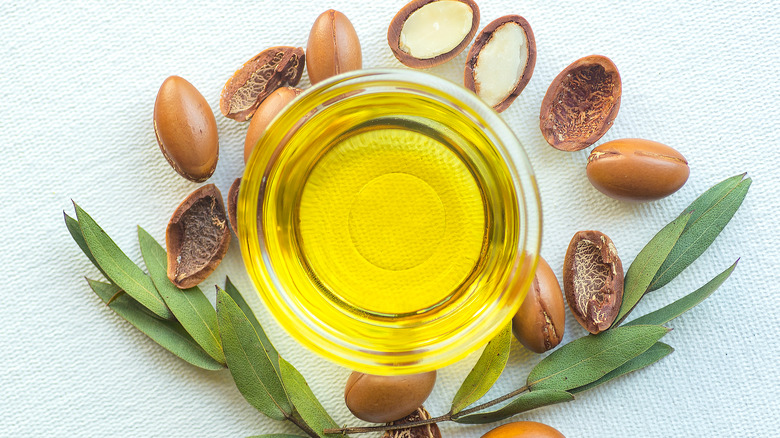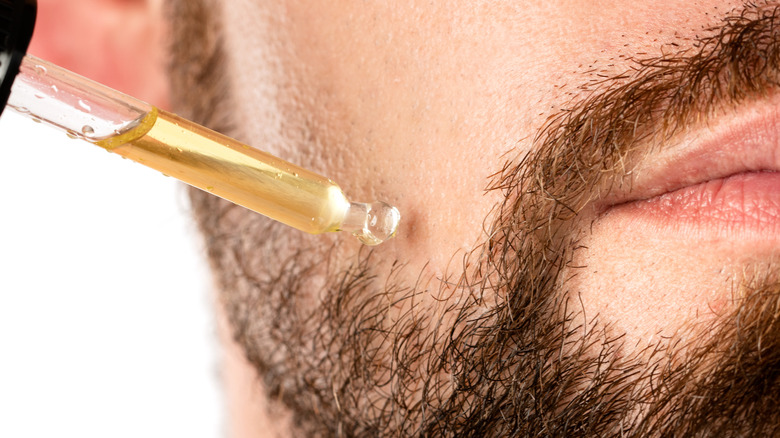The Health Benefits Of Argan Oil
You may have come across various hair shampoos, conditioners, and creams with a spotlight ingredient called argan oil. With each plant towering at 8 to 10 meters in height and living for around for 200 years or more, the argan tree is native to Morocco and has a spiny appearance with various clusters of flowers (via Plants for a Future). Argan oil is derived from this tree, and the essential oil has been used traditionally for its health benefits in both edible and medicinal forms.
In the past, it was also used for burning in oil lamps because of its superb luminosity (via Some Moroccan). Later on, scientists discovered argan oil's usefulness in our diets. This is thanks to the hidden nutrients it carries, along with its uses as a moisturizer and conditioner, according to a 2015 study published in Revista de Fitoterapia. This made argan oil a must-have breakfast food to dip bread in and use for hair and skin nourishment.
Why is argan oil good for you?
Although research is currently limited, argan oil is packed with a variety of antioxidants and anti-inflammatory compounds that can potentially relieve irritation, redness, or rashes on the skin or scalp, according to Healthline. The high amounts of vitamin E in argan oil work wonders for reducing the destruction caused by free radicals. It may also be helpful for alleviating symptoms of inflammatory conditions, such as liver disease.
Additionally, Healthline mentions the powerful effects of consuming argan oil on your heart health. This healthy oil contains sufficient omega-3 fatty acids, which are known for reducing the risk of heart failure and managing cholesterol levels. Again, more evidence is needed to support the claims, but the available research does point toward these benefits, adds Healthline.
Moreover, argan oil is an excellent natural product to use to moisturize your skin, per Prevention. The nourishing nutrients — especially vitamin E — boost skin health, making it softer while removing wrinkles and signs of aging. You can also apply it regularly to fade dark spots and blemishes or reduce hyperpigmentation, reports Prevention.


